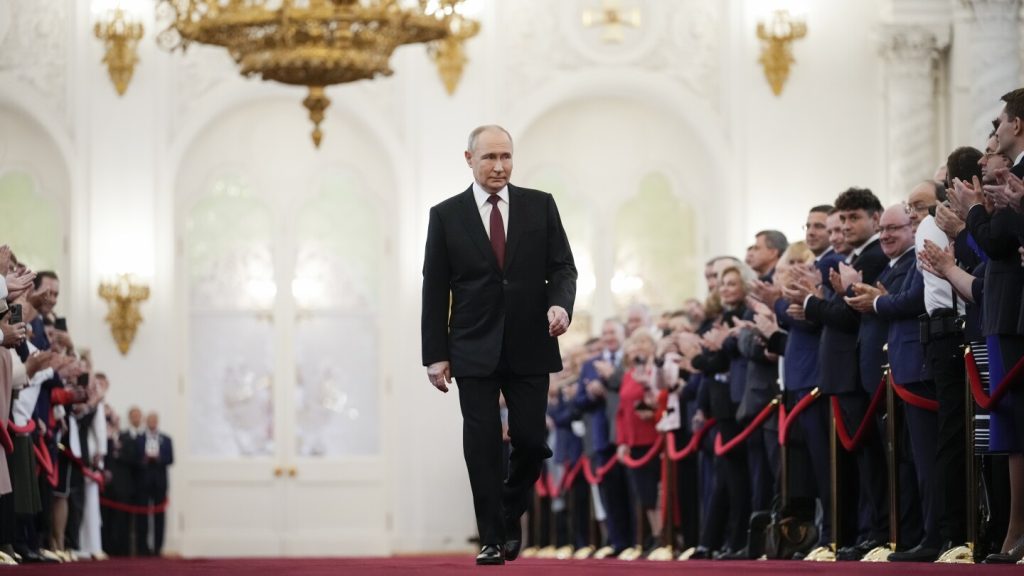President Vladimir Putin began his fifth term as Russia’s President, pledging to defend the country against all obstacles and realize its plans with unity and determination. Since coming to power in 1999, Putin has transformed Russia from a struggling economy to a global pariah state, facing sanctions from the West due to conflicts like the invasion of Ukraine. Putin’s new term extends until 2030, giving him more time to solidify his power and influence both domestically and internationally.
Putin’s inauguration was a highly orchestrated event, with him walking through the Kremlin’s corridors before reaching the Grand Kremlin Palace for the ceremony. Despite the cold and rain, his guard of honor waited patiently as he made his way to the Palace. During his speech, Putin expressed gratitude to those involved in the conflict in Ukraine and criticized the West for its policies of aggression towards Russia. The ceremony was attended by over 2,500 guests, including government officials and celebrities, though some Western ambassadors chose not to attend.
In his speech, Putin called for dialogue with Western states but also warned that the choice was theirs to make between cooperation and peace or continued aggression against Russia. The event concluded with a 30-gun salute and Putin reviewing the presidential regiment in the Kremlin’s Cathedral Square. He then received a blessing from Patriarch Kirill, who likened Putin to Prince Alexander Nevsky, known for defending his people. The Church has endorsed Putin’s actions in Ukraine, despite the conflict causing numerous casualties.
As Putin enters his fifth term, questions arise about his future plans, both domestically and abroad. With Russian forces advancing in Ukraine and the war escalating, Putin has declared his intent to defend Russia’s sovereignty and security. The economic impact of the conflict is being felt in Russia, with rising costs of living and increased defense spending. The possibility of more taxes and military conscription looms as the government may have to fund the war effort.
Putin’s grip on power remains unchallenged, with laws enacted to suppress any form of dissent or criticism. Opposition figures like Alexei Navalny have been imprisoned or fled the country, and Putin’s control over media and civil society is tightening. Despite promises of prosperity, many Russians are feeling the economic strain of the conflict in Ukraine. As Putin embarks on another six-year term, his authoritarian rule appears set to continue, with opposition voices silenced and dissent crushed.
With Putin firmly in control, the future of Russia under his leadership remains uncertain. As he consolidates power and maintains his influence, the country faces challenges both domestically and on the international stage. The conflict in Ukraine and Russia’s strained relations with the West could further isolate the country but strengthen its ties with other regimes like China and Iran. Putin’s presidency is characterized by authoritarianism and repression, leaving little room for political opposition or dissent.


